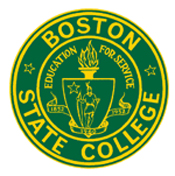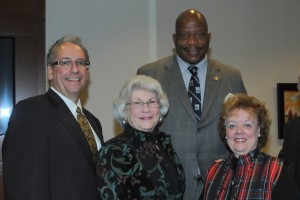It happens every year. The ecstasy, and then . . . not the agony, but something far from ecstasy.
The ecstasy happens on Friday morning at UMass Boston’s commencement. The opposite occurs the next day, Saturday around 5 p.m.
The transformation from one state to another is utterly complete. Friday’s shimmers of pride, glistening here, with toddlers clutching their mother, the “graduate;” glistening there, through a multitude of stoles standing at attention on their black graduation robes, brilliantly representing a nation, a cause, a hope for something great; or a literally glistening magnanimous blue ocean, stretching forth from the commencement lawn and stage. Each wave whispers to those commencing the new era of opportunity that their UMass Boston education will afford, “look out at your future — wide, deep, — boundless.”
A few hours more than 24 I peer out of the the ballroom-side windows of the Campus Center and view desertion. The only detectable movement is the elongated spots of white inching slowly across the harbor. And a sea of chairs, crumpled, strewn, empty.
Things remind us of things. The chairs remind me of match sticks, used, tossed, done. The thousands of gray plastic pieces with their sharp angles seem as if they swallowed and then spit out the preceding day’s jubilation.
It has become a privilege to experience these extremes — the widest smiles on one day — the saddest chairs the next. Perhaps, more so this year.
After taking in this view, I about face and enter the ballroom to meet the members of the State College at Boston Class of 1963. They share celebrating “commencement” with the preceding day’s graduates, but in the opposite direction. Fifty years since they crossed their Huntington Avenue campus court yard to receive their diploma.I feel unusually connected to this group. I was born the year they graduated. Their 50 is also my 50. We both share five decades of passage.
“Her first assignment? Roxbury. An elementary school on Ruggles Street. Seventy children representing every stripe of educational maturation. Go to it. Teach.”
When our guests have been seated for dinner, I find a spot at one table. Three affable former teachers are relishing the renewal of their friendship and telling me how much they enjoyed their years as educators, one in elementary school, another teaching middle school math, a third as high school French teacher for forty years. “I loved every second of being a teacher,” said one of them. “But I didn’t love every day.” Somehow I understood that. My mother was a public educator too, and would have been just about these retired teachers’ age.
A more reticent woman sat to my right. She had a walker and her voice quivered. Professor Ann Gavin Deplacido ’51. She was one of three former Boston State College professors who joined the party. During the speaking program, two others had come to the podium to receive bouquets of flowers, so I was surprised that she also was a former professor.
Professor Gavin — as she was know to her former students — a trail blazer. After graduating from Emmanuel, her first job was as an interpreter for a government agency in Washington. But a nagging desire to be a teacher wouldn’t quit, so she enrolled at Teachers College of the City of Boston to pursue a master’s degree. Her first assignment? Roxbury. An elementary school on Ruggles Street. Seventy children representing every stripe of educational maturation. Go to it. Teach.
She did. There was the boy who would steal his classmate’s chocolate Devil Dog every day. And the clever mother of that classmate, who filled her son’s Devil Dog with mustard. Justice.
“Now an octogenarian, Professor Gavin’s tales personified the college’s motto, ‘Education for Service.’
In the 50’s there were few women with doctorates in education. Dr. Looney, then the president of Teachers College, encouraged Ann to pursue her PhD. She went to B.C. and became the only Teacher’s College education professor with a doctorate. She taught generations of future teachers, like the energetic and positive alumni who filled the ballroom.
Teachers retire really well I thought. Not monetarily necessarily, but they dwarf other professions in the fulfillment category. They love to learn and love to help others love to learn. That’s what they did day in and out for decades, they stayed open to ideas and experiences, and had almost unparalleled capacity to nurture human connection. After they leave the classroom they continue to coast confidently atop the waves of what there’s still to learn.
What good fortune to sit next to these retired teachers, and their professor, not only an alumna, but someone who is a pillar of the Boston State College legacy. Now an octogenarian, Professor Gavin’s tales personified the college’s motto, “Education for Service.”
But unlike her peer professors in the room, she hadn’t received flowers. Her brother and escort, seated nearby, whispered to me, “the other two got flowers. Not to make a big deal, but we were wondering why Ann didn’t get flowers. There’s a bouquet still near the podium and we were thinking, well maybe its for her.” I went to find out. “No rush, no rush, please. . .”, Ann said.
My colleague told me that indeed they were for Professor Gavin. They couldn’t locate her earlier.
Precious moments. They come only once in awhile. And here one was. I got to present Professor Ann Gavin Deplacido ’51 with a small token of UMass Boston’s gratitude.
My new friend radiated appreciation. From the matchstick chairs to this marvelous moment, things felt complete.
Graduates go forth to start careers, build lives and the university empties; but that vacuum is filled by new generations who embrace the ultimate gift — learning. And on a hot Saturday evening in June, UMass Boston saw the result of its mission return.
In this university’s unique history, through the legacy of Boston State, these graduates not only flourished because of what they received on Huntington Avenue five decades ago, they became the pulse of public education by educating generations of citizens for Boston and the world.
___________________________________________________________
The Graduates of the Class of 1963 presented their Class Gift to Chancellor Motley at their reunion dinner.
It will support the Boston Teachers College Scholarship Fund, which is nearing its $500,000 goal. The scholarship supports UMass Boston students preparing to be teachers in the College of Education and Human Development.
To support the fund, you may make a gift online here>
Nan Cormier is director of advancement communications









